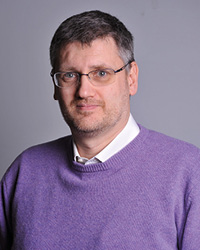Lino Giusti interviews Massimo Stroppari.
Industrial Problem Solving with Physics (IPSP) is a week-long event organised by the Department of Physics, the Doctoral School in Physics, and the Scientific Research and Technology Transfer Division of the University of Trento, in collaboration with the Employers’ Association of the Province of Trento, and the mechatronics Trentino development hub Polo Meccatronica – Trentino Sviluppo. This initiative was set up to answer questions posed by companies, through the teamwork of a group of talented young minds. Now in its fourth edition, this year IPSP saw a great deal of interest from industry, with 19 problems being submitted. Among the companies chosen were Adige Spa – BLM Group, Tecnorad and Areaderma Ltd. The winner of IPSP 2017 was the project prepared for Areaderma.
We talked to Massimo Stroppari, head of research and development at Areaderma, a company with around 50 employees, which has operated for 25 years in various sectors of the cosmetics industry such as skincare products, and class I and class II medical devices.
What motivated Areaderma to participate in Industrial Problem Solving with Physics?
 There are a number of things that led us to participate in IPSP but they can be divided into 4 main areas. The first is resources, since like many small and medium-sized businesses, Areaderma has limited resources to deal with problems such as the one we proposed, both in terms of staff and equipment. The second area is skills, which in the company are mainly concentrated on areas specific to our sector such as the formulation of new products. This means that less attention is paid to areas such as development of the process technologies, which, depending on the aspects you are interested in developing, require high level skills in different fields. This need to broaden the range of skills available to the company leads us to the third area, which is that of building a network with others, particularly the University, with whom we can establish collaborations and partnerships for other projects. Finally, we saw a marketing element in this initiative, to raise the visibility of the company from a less conventional point of view.
There are a number of things that led us to participate in IPSP but they can be divided into 4 main areas. The first is resources, since like many small and medium-sized businesses, Areaderma has limited resources to deal with problems such as the one we proposed, both in terms of staff and equipment. The second area is skills, which in the company are mainly concentrated on areas specific to our sector such as the formulation of new products. This means that less attention is paid to areas such as development of the process technologies, which, depending on the aspects you are interested in developing, require high level skills in different fields. This need to broaden the range of skills available to the company leads us to the third area, which is that of building a network with others, particularly the University, with whom we can establish collaborations and partnerships for other projects. Finally, we saw a marketing element in this initiative, to raise the visibility of the company from a less conventional point of view.
Can you tell us what problem was proposed by Areaderma, what solution the team from the University suggested, and how it will be implemented in the company?
The topic proposed by Areaderma was to verify whether microwave technology could be used to heat the raw materials in the process of the production of creams. At first glance it might seem to be something trivial and easy to resolve with a few simple tests, but in reality it is extremely complex, especially with raw materials that don’t contain water and/or that are organic. The University team worked on the topic exceptionally well, moving from one discipline to another competently, and produced a response that included analysis, simulation and experiments. The results of the analysis, which were supported by tests and by molecular physics and finite element simulation modelling, helped us not only to understand how microwave technology could be used in our processes, but also to have a very good understanding of the process phenomena to control, and so to have guidelines to follow to be able to apply the process at an industrial level.
AreaDerma is introducing the principles of the Toyota Production System in the management of its production processes. What does this approach involve and what are the possible areas of collaboration with the university?
The introduction and adoption of the principles of the Toyota Production System (TPS) within the company is a process that started several years ago and is producing very satisfying results. Like any change it needs time, but more particularly, given its pervasiveness and the impact that it has on processes throughout the company (in both management and operations), it needs consistency and to be applied on parallel fronts to continue to strengthen its sustainability. To do this Areaderma has drawn up a technological evolution roadmap that is strongly integrated with the other changes taking place, and the topic proposed for IPSP is one of the points along the roadmap. In this framework the channel of collaboration that has been opened with the University could make two fundamental contributions. The first is to be able to undertake this evolution with the support of a wide and deep skills base that can strengthen the solutions that are developed. The second contribution is in the professional growth of the staff, a fundamental element of TPS, which sees people as the most important resource of a company and the key to guaranteeing real continuous improvement. We also like to think that, as happened in the intense week of the IPSP, the University staff involved in these collaborations (in particular the younger staff) can also increase their own skills, experiencing first hand the integration of an academic approach with an industrial one.




